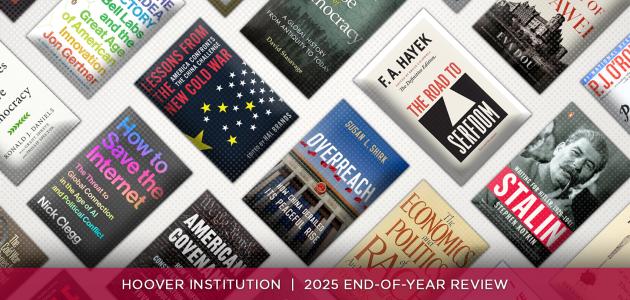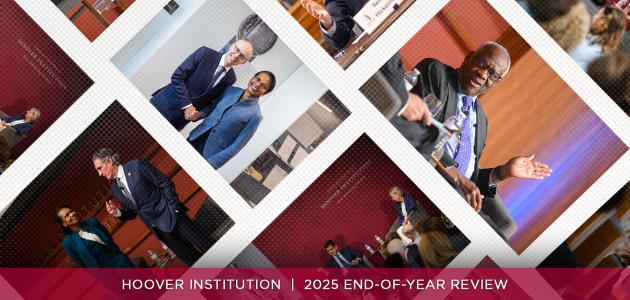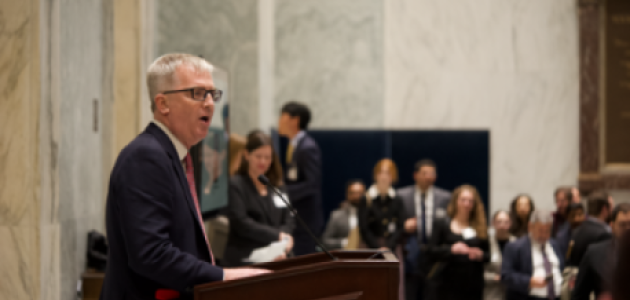A weekly digest of the latest news and research related to the work of the Technology, Economics, and Governance Working Group. Topics covered in the digest include cybersecurity, domestic regulation, innovation, international competition, social media disinformation, and the California exodus.
This week’s edition covers stories that look back at the policy battles of 2021 and posit what legislation is likely to be enacted at federal and state levels in 2022. Other stories explore international reactions to Russia’s increasingly aggressive behavior, expose Chinese contracts for surveillance tech to track Western critics, and assess the implications of the Elizabeth Holmes trial and verdict.
Industrial Policy, International Competition and Cooperation
How to talk to Mr Putin | The Economist
Tensions continue to rise in Eastern Europe as NATO allies rebuke Russia for its aggressive military buildup near the Ukrainian border. Talks between Russia and the United States will begin on January 10th in Geneva where American leaders hope to forestall a potential invasion of Ukraine. The Economist writes that Putin’s excessive demands—including the permanent end to NATO expansion and veto power over military exercises in eastern parts of NATO territory—may strengthen NATO by promoting solidarity among other regional powers. Russia’s recent hostility may ultimately convince Sweden and Finland of the merits of NATO membership, provided that the alliance upholds its defensive commitments.
China harvests masses of data on Western targets, documents show | The Washington Post
According to a recent investigation by the Post, the Chinese government has redoubled its efforts to develop more advanced digital surveillance capabilities. A review of publicly accessible contract bids and awards shows that China’s government agencies and state media outlets are purchasing data collection software and investing in novel tools for public opinion analysis. Beijing hopes to refine its censorship strategies by closely tracking domestic dissent on social media and aims to bolster the Chinese Communist Party’s international image by expanding targeted surveillance and “public opinion guidance” beyond the country’s borders. Many contract documents specify that systems should identify and track Western journalists and “key personnel” who are critical of China.
Domestic Regulation
2022 will be the ‘do or die’ moment for Congress to take action against Big Tech | CNBC
As the new year begins, Congress continues to debate the best regulatory approaches to manage the privacy, safety, and freedom of speech issues that have emerged with the rapid growth of big tech. While some legislative initiatives have bipartisan support, Democrats have largely led the push for stronger antitrust laws, and their plans could be in jeopardy if Republicans win the House majority next fall. Meanwhile, both the FTC and the DOJ have continued to build antitrust lawsuits against tech giants.
The state tech policy battles that will rage in 2022 | Axios
Congress’s failure to make headway on tech regulation has prompted some state legislatures to attempt to pass powerful legislation typically reserved for federal decision-makers. However, many such bills have faced judicial challenges and fierce resistance from powerful tech lobbyists. Axios reviews some of the most prominent instances of state action against big tech.
Innovation
How Silicon Valley and a New Pentagon Strategy Are Breaching the Defense Business | The Wall Street Journal
Growing competition with Russia and China has led the Pentagon to increasingly prioritize spending on military innovation over procurement of traditional hardware manufactured by legacy contractors. New models of acquisition that separate development from production are beginning to threaten expected profits from high-volume procurement and operations and maintenance contracts. Despite the Senate’s approval of a massive increase in defense spending last month, defense contractors’ stocks remain at an eight-year low. Some investors fear that the largest firms have been too slow to adapt to America’s rapidly changing national security needs.
Why Do US Hypersonic Missile Tests Keep Failing? They’re Going Too Fast | Defense One
According to Joshua Pollack, a senior research associate at the Middlebury Institute of International Studies, the Department of Defense’s habit of accelerating development timelines for hypersonic missiles has been counterproductive, as rushed prototypes are typically unsuccessful. Pollack draws parallels to ballistic missile defense programs from the 1990s and cautions that the urgency to innovate has placed undue pressure on the testing cycle and will continue to hamper efforts to refine critical defense technologies.
Cyber
U.S. and Britain Help Ukraine Prepare for Potential Russian Cyberassault | The New York Times
Fears that Russian cyberattacks could cripple critical Ukrainian infrastructure have driven the United States and Britain to deploy cyberwarfare experts to Ukraine. According to several anonymous officials, Putin could leverage the fallout of a massive cyber assault to ultimately oust the Ukrainian government, thereby escaping the sanctions that would follow an overt military invasion. Large-scale cyberattacks against Ukraine are not without precedent. In December 2015, Russian hackers cut electricity to a major operator of Ukraine’s power grid.
Congress zooms in on cybersecurity after banner year of attacks | The Hill
After a year of damaging cyberattacks against American targets, members of Congress from both parties have demonstrated their intent to continue to cooperate on cybersecurity legislation in the new year. So far, bipartisan efforts to bolster the nation’s cybersecurity offer a hopeful sign that the government will be able to muster an increasingly coordinated response to future cyber threats.
California
Elizabeth Holmes’ Verdict Won’t Change Silicon Valley | The Verge
The Verge’s Elizabeth Lopatto maintains that the Theranos debacle is broadly representative of a deeper problem with Silicon Valley’s startup culture that discourages investors from engaging in due diligence. It is wrong, she argues, to expect taxpayers to foot the legal bill for exposing fraud after wealthy investors make misjudgments. The Holmes trial proves that founders may be held accountable if they are caught but there are still few incentives for investors to blow the whistle.
Freedom of Speech, Domestic Democracy, and Extremism
Assessing the right-wing terror threat in the United States a year after the January 6 insurrection | Brookings
Brookings Senior Fellow Daniel Byman offers an overview of right-wing extremism in the aftermath of the January 6th insurrection, along with some suggestions for policymakers to counter domestic terrorism. While there were zero reported deaths from right-wing terrorism in 2021, Byman emphasizes that it remains concerning how violent rhetoric and threatening language have become increasingly common in American politics. Domestic extremists remain unorganized, he says, but leaders should continue to investigate the January 6th attacks and take steps to protect against the far-right infiltration of military and law enforcement organizations.














